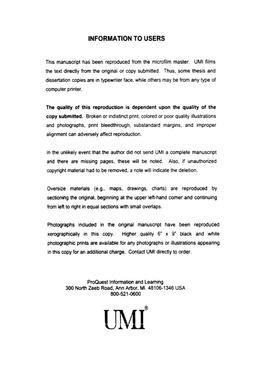| dc.contributor.advisor | DeBacker, Teresa, | en_US |
| dc.contributor.author | Bocar, Deborah Leslie. | en_US |
| dc.date.accessioned | 2013-08-16T12:18:24Z | |
| dc.date.available | 2013-08-16T12:18:24Z | |
| dc.date.issued | 2001 | en_US |
| dc.identifier.uri | https://hdl.handle.net/11244/381 | |
| dc.description.abstract | Two-hundred and forty-four participants participated in some aspects of the evaluation process. Participants were recruited from three continuing education program sites in the Midwest United States. Seventy-two participants completed pre-program, immediate post-program, and delayed post-program surveys that measured knowledge, attitudes, clinical behaviors, and perceptions of clinical practice related to breastfeeding promotion and assistance. A within-subjects analysis of variance indicated significant improvement was noted in all areas. A delayed post-program survey was returned by the participants one month after completing the program. A slight decline in correct scores was noted. However, the scores continued to be significantly higher than the pre-program scores. | en_US |
| dc.description.abstract | This study evaluated a continuing education program for health care providers who promote and assist with breastfeeding. Formative and summative evaluation processes were completed to collect quantitative and qualitative data for analysis. The two primary purposes of the evaluation study were to determine the effectiveness of the program and to identify recommendations for improvement. | en_US |
| dc.description.abstract | Numerous recommendations to improve the program were made by program participants, program planning committee members, clinical supervisors, content experts, and education experts. Recommendations from several sources focused on reducing content and/or lengthening the program to moderate the pace of the program and to utilize more learner-centered instructional strategies. | en_US |
| dc.description.abstract | The investigator assessed the evaluation process, procedures, and instruments using utility, feasibility, propriety, and accuracy standards as outlined by the Joint Committee on Standards for Educational Evaluation. The findings have implications for both practice and future research. A recurring recommendation was to modify the instructional strategies to include more active learning methods in the program. Future research should also test approaches to reduce the decline in instructional effect over time. | en_US |
| dc.format.extent | xvii, 246 leaves ; | en_US |
| dc.subject | Education, Educational Psychology. | en_US |
| dc.subject | Breastfeeding Educator Program. | en_US |
| dc.subject | Breastfeeding Study and teaching. | en_US |
| dc.subject | Education, Health. | en_US |
| dc.subject | Breastfeeding promotion. | en_US |
| dc.subject | Education, Adult and Continuing. | en_US |
| dc.title | An evaluation of the Breastfeeding Educator Program(TM): A continuing education program for health care providers. | en_US |
| dc.type | Thesis | en_US |
| dc.thesis.degree | Ph.D. | en_US |
| dc.thesis.degreeDiscipline | Department of Educational Psychology | en_US |
| dc.note | Source: Dissertation Abstracts International, Volume: 62-10, Section: A, page: 3306. | en_US |
| dc.note | Major Professor: Teresa DeBacker. | en_US |
| ou.identifier | (UMI)AAI3028809 | en_US |
| ou.group | Jeannine Rainbolt College of Education::Department of Educational Psychology | |
